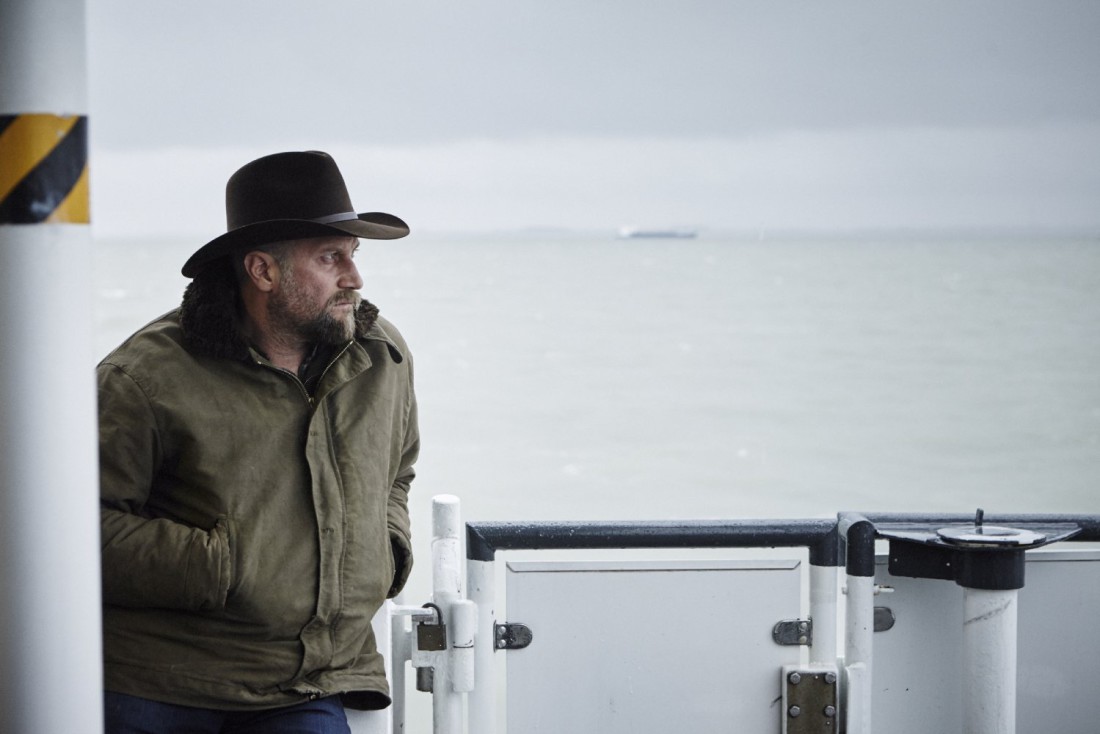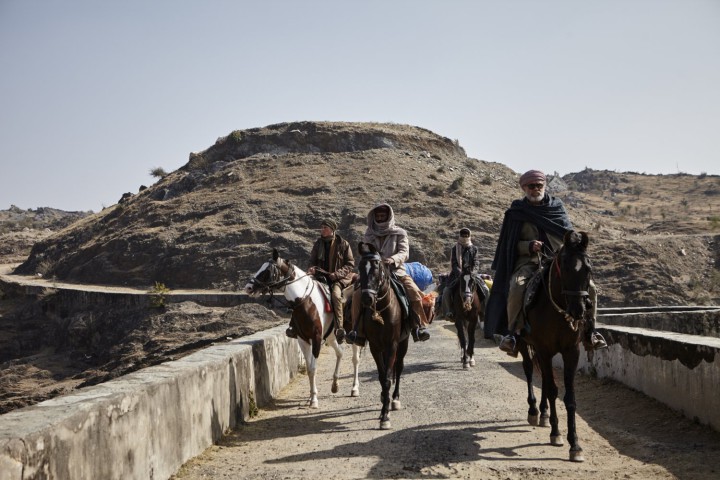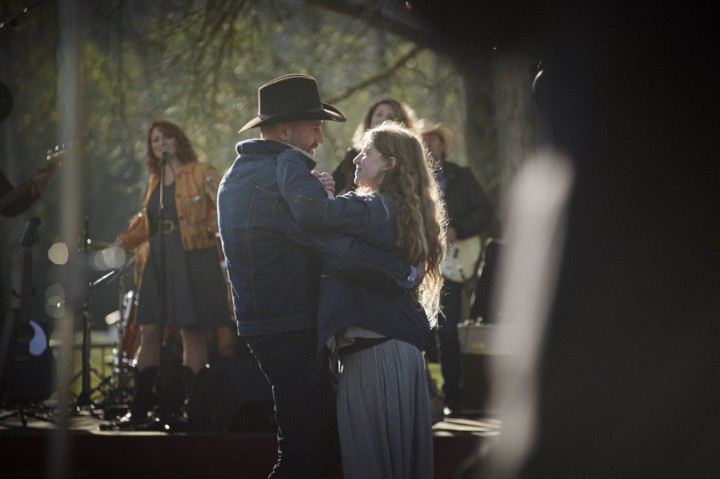While Thomas Bidegain’s Les Cowboys bears a passing resemblance to John Ford’s The Searchers, it is far from a remake. In his directorial debut, Bidegain has crafted something truly unique while maintaining the narrative engine of his source material, and the result is a poignant take on the cultural gulf between Islam and the Western world. As such, Les Cowboys is a conflicted and ambiguous film that doesn’t tip its hand until the final sequence.
If you only watched the first act of the film, you could be excused for mistaking this as a piece of xenophobic pulp fiction, portraying European Muslims with the same degree of inhuman Otherness that characterized depictions of Native Americans in traditional Westerns. It’s not until the film’s second half that things really get interesting. Without giving too much away, it’s at this turning point that the plot of Les Cowboys critically diverges from that of The Searchers and genuinely becomes its own beast.
The film opens on a Stetson-laden early ’90s francophone festival celebrating Western Americana (I have it on good authority that this is still an actual phenomenon) from which a teenage girl disappears. Unlike in The Searchers, she has not been abducted, but has instead converted to Islam and run off with a hitherto unknown boyfriend, a radicalized Muslim in the days before that was a household term. The girl’s father and brother (François Damiens and Finnegan Oldfield, respectively) set out to bring her home, with Damiens delivering a suitably intense reinterpretation of John Wayne’s murderous-racist-with-a-heart-of-gold Ethan Edwards. Both this film and The Searchers ultimately find their way to a position of grudging acceptance, but Les Cowboys gets there by a more oblique path.
Whereas The Searchers operates in the classical Fordian mode of aggrandized machismo, Les Cowboys carries on Bidegain’s brand of masculinity, as virulent as it is virile, previously established in his screenwriting work on films such as A Prophet and Rust and Bone. As the film covers its almost 20-year span, it touches on major terrorist attacks (including 9/11) only in passing, choosing instead to focus on the character arc of Oldfield’s Kid as he assumes his father’s mantle in the globe-trotting quest to find his long lost sister. This journey takes him to Pakistan, where he poses as a doctor in a refugee camp in order to gather intelligence on his sister’s whereabouts. And yet he’s still his father’s son, taking absurd risks that land him in jail after joining forces with mercenary hostage trader John C. Reilly, inexplicably cast here but excellent and entertaining nonetheless. It’s this prison sequence that firmly derails Les Cowboys’ narrative resemblance to The Searchers, and it’s a brilliant manipulation of the story to eventually underscore a point I wasn’t sure this film was going to get around to making, but Bidegain and co-writer Noé Debré did not let me down.
To clarify, this film is not as good as The Searchers. But while it does not compare favorably on the whole, in places it more than equals its predecessor. Les Cowboys is a more conflicted film, successfully engaging a very difficult subject with a high degree of subtlety and nuance necessitated by the geopolitical context in which the movie was made. There is no sermonizing, no grand statement of purpose, only a low-key resolution to the central plot that proves all the more gratifying due to its understatement. Can it equal that final shot of the door closing on John Wayne in The Searchers? Of course not, but in many ways it’s the fulfillment of that scene’s implicit semiotic statement: that the time for antiquated notions of hard-line masculinity must inevitably give way to something new. The more challenging question raised by this film is whether or not audiences are prepared to turn out for an arthouse Franco-Belgian pseudo-western that encourages a more tolerant and accepting view of foreigners with seemingly alien cultural practices and religious beliefs; in the immortal words of Ethan Edwards, “That’ll be the day.” Rated R for brief violence and drug use.
Now playing at Grail Moviehouse






Before you comment
The comments section is here to provide a platform for civil dialogue on the issues we face together as a local community. Xpress is committed to offering this platform for all voices, but when the tone of the discussion gets nasty or strays off topic, we believe many people choose not to participate. Xpress editors are determined to moderate comments to ensure a constructive interchange is maintained. All comments judged not to be in keeping with the spirit of civil discourse will be removed and repeat violators will be banned. See here for our terms of service. Thank you for being part of this effort to promote respectful discussion.